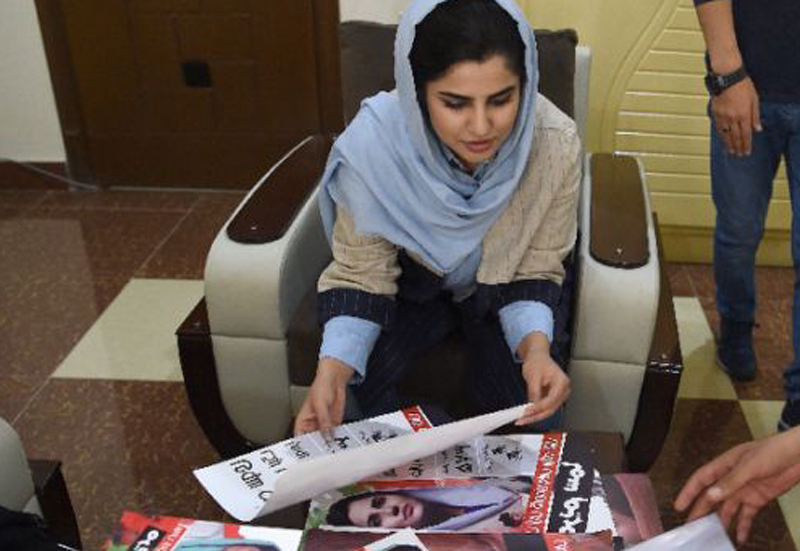Kabul: As preparations continued in Afghanistan on Friday for the country’s much-awaited general elections, the list of candidates, dominated by young, educated Afghans, signaled an undercurrent of change.
Out of the over 2,500 candidates, who are contesting in 249 seats of the Lower House of the Parliament or Wolesi Jirga, 60 per cent are young professionals, in their late twenties and early thirties, including journalists, businessmen, sportsmen, educators and government workers.
“As a parliamentary reporter, I saw lawmakers who were illiterate, unaware of their authorities, some were even member of mafia groups and came to parliament for money laundering, others to improve their businesses,” a young candidate, Saleha Soadat, told Efe news.
The 29-year-old says she decided to contest the polls to challenge the old class of “criminals, mafia, drug traffickers and land grabbers”, who continue to dominate the Afghan Parliament.
However, these young politicians have no money power and have been depending on door-to-door or street campaigns to ask for people’s support.
“In my campaign, I have visited the most remote villages of Kabul, the areas where the wealthy, warlord, murderer and criminal candidates can’t go, fearing their lives,” Soadat said.
“I saw how our people are fed-up with these corrupt politicians. I am sure this time people will vote for merit and honesty.”
A World Justice Project survey in 2016 had found that Afghans perceived their legislature as the county’s second-most corrupt institution, just behind its judiciary.
However, no lawmaker has yet been convicted in the country over illegal activities, owing to their parliamentary immunity.
“There are lawmakers, who have committed serious crimes in Kabul such as murder, land grabbing, and illegal constructions, but they could not be brought to the books because of their parliamentary immunity,” Sami Mahdi, 34, another candidate, told Efe.
Mahdi, who is a Kabul University lecturer and worked for a decade as a journalist, says besides the eradication of corruption in parliament, his campaign also focuses on women’s rights, addiction and internal security.
On October 20, around 9 million Afghans – out of a total 34 million – will vote in the polls that come after a delay of three years and amid various security challenges.
The Taliban had earlier called the elections “an American process” and said they would oppose it.
On polling day, 2,384 out of the 7,384 polling stations would remain inactive, as they are in districts controlled by the Taliban, Abdul Azizi Ibrahimi, a spokesman for the Independent Election Commission (IEC) told Efe.
On Thursday, Saleh Muhammad Achakzai, a parliamentary candidate along with seven of his supporters were killed and 11 others injured in a suicide attack in Helmand province.
[source_without_link]IANS[/source_without_link]

